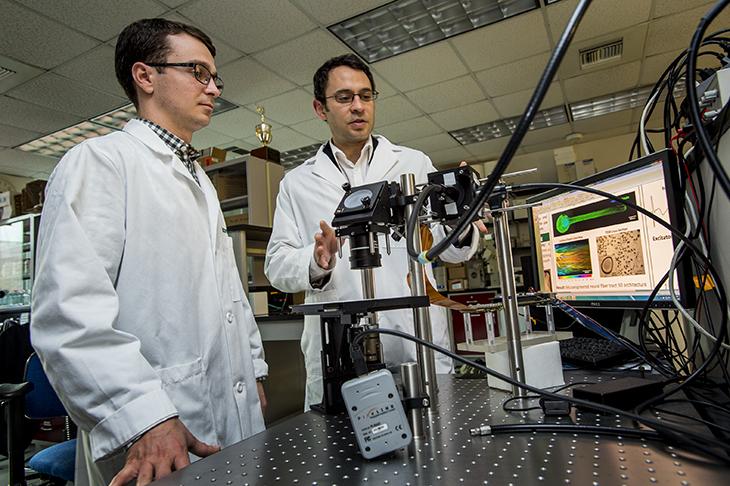Biomedical team creates "nerve on a chip"
Michael J. Moore and J. Lowry Curley first met in the laboratory as professor and student. Now the two Tulane University researchers have started a new biomedical company that"s winning praise and awards.
They are co-founders of AxoSim Technologies, which aims to improve pharmaceutical drug development by providing a faster and more advanced alternative to animal testing. Moore is an associate professor of biomedical engineering and Curley is a postdoctoral researcher in the biomedical engineering program.
“In this country we spend billions of dollars developing drugs, the vast majority of which don't ever become available to patients,” Moore said. “We're offering something that we hope will reduce the cost of this process.
"In this country we spend billions of dollars developing drugs, the vast majority of which don't ever become available to patients."
Michael J. Moore, associate professor of biomedical engineering
That something is what they call “nerve on a chip,” a 3D model of nerve tissue about a millimeter in size. Moore and Curley said they want this tiny labor of love to be the first line of defense in testing the safety and side effects of new medications, rather than expensive animal testing and prolonged drug development.
“It eliminates potentially harmful drugs,” Curley said.
Results of a new drug's interaction with the nerve on a chip would provide data to drug developers faster and, they said, result in less money being wasted on drugs that will never make it to the market. Those savings, Moore and Curley hope, would eventually be passed on to those paying for the prescription drugs that do win government approval.
AxoSim was founded in June but already is earning praise and support, including funding from the National Science Foundation's Innovation Corps program. They made headlines last month after winning the $25,000 top prize at the New Orleans BioInnovation Center"s BioChallenge competition, where they pitched their business to a panel of investors.
Moore and Curley said their first round of drug research will focus on chemotherapies that reduce side effects in cancer patients.

